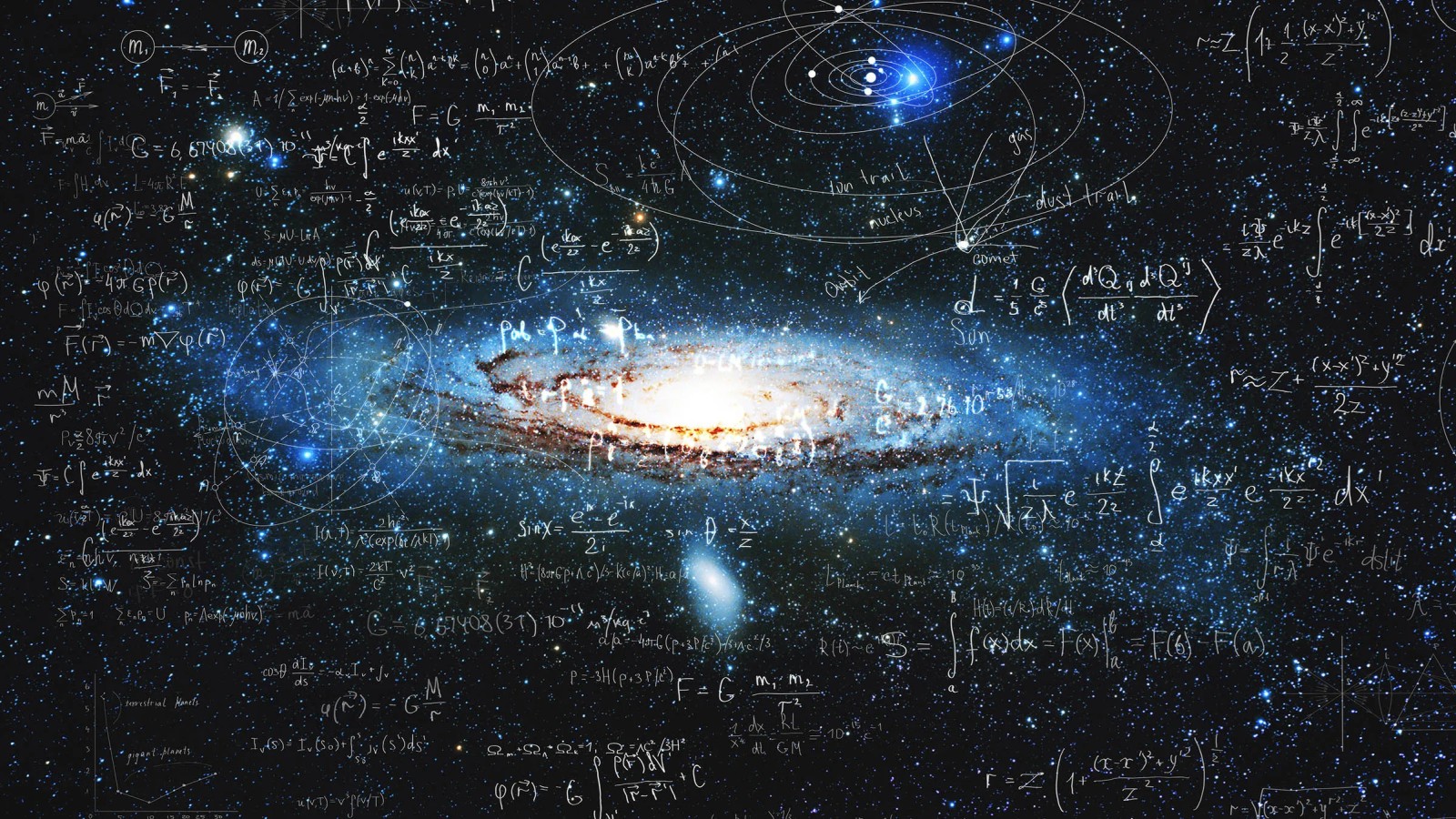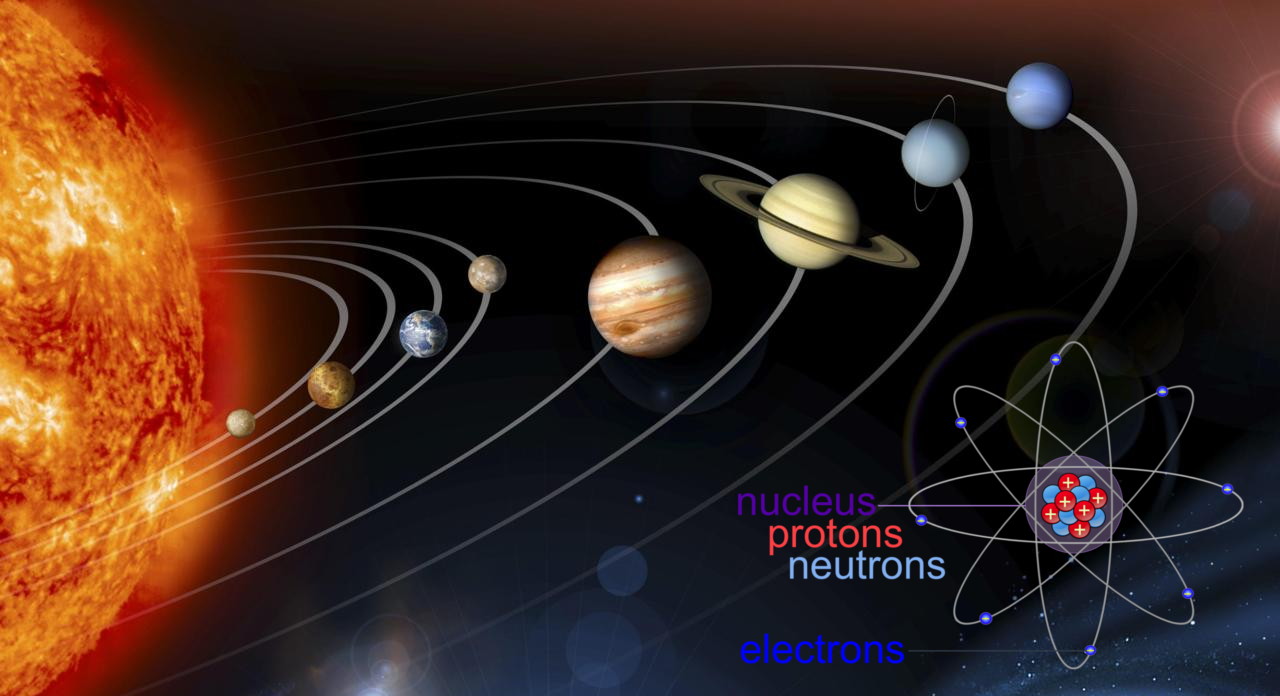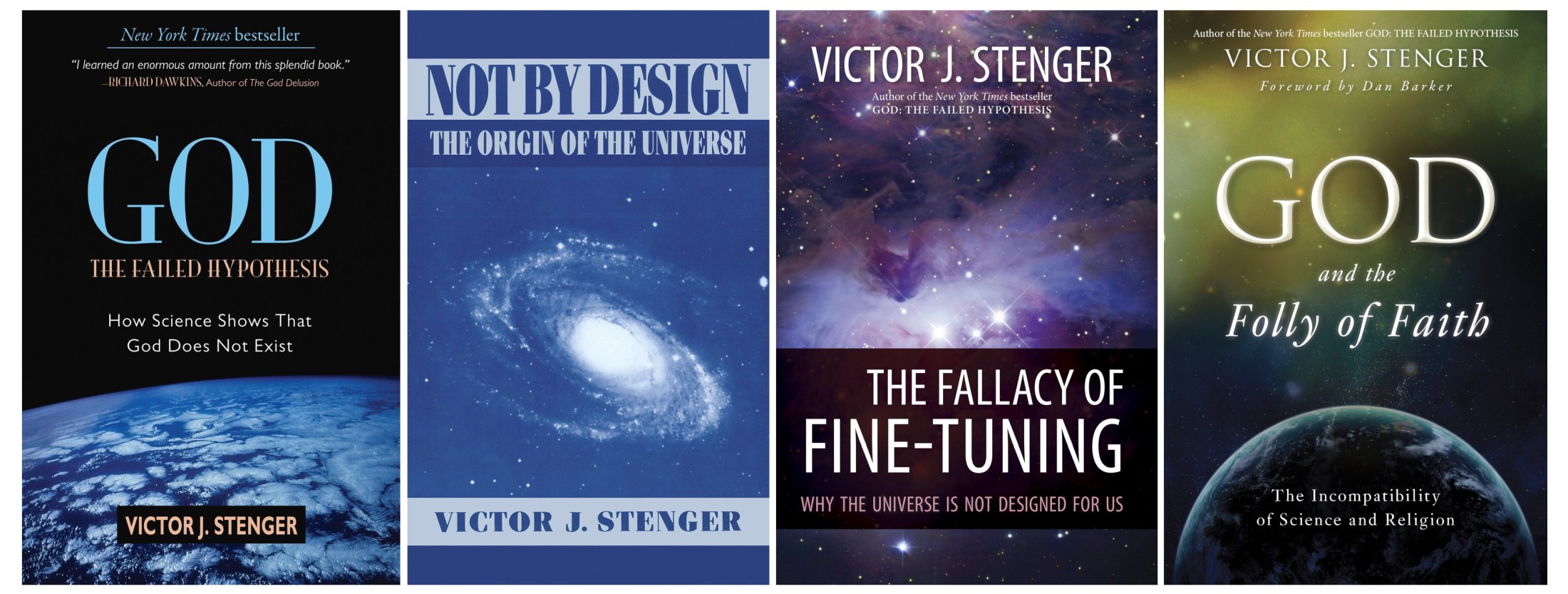Fine-tuned Universe
By chance or by design?
The fine-tuned Universe is the proposition that the conditions that allow life in the Universe can only occur when certain universal fundamental physical constants lie within a very narrow range, so that if any of several fundamental constants were only slightly different, the Universe would be unlikely to be conducive to the establishment and development of matter, astronomical structures, elemental diversity, or life as it is presently understood.
It is known that the Universe would be very different, if these constants took values significantly different from those we observe. For example, a few percent change in the value of the fine-structure constant would be enough to eliminate stars like our Sun.
Paul Davies:
There is now broad agreement among physicists and cosmologists that the Universe is in several respects 'fine-tuned' for life. ... The conclusion is not so much that the Universe is fine-tuned for life; rather it is fine-tuned for the building blocks and environments that life requires.
Stephen Hawking:
The laws of science, as we know them at present, contain many fundamental numbers, like the size of the electric charge of the electron and the ratio of the masses of the proton and the electron. The remarkable fact is that the values of these numbers seem to have been very finely adjusted to make possible the development of life.
Taeil Albert Bai:
A slight change in the value of one of the above-mentioned physical constants one way or the other would push all stars to become blue giants or to become red dwarfs. In order to have sun-like stars in the universe which can sustain life, the values of these fundamental constants must be fine-tuned. ... A slight change in the magnitude of the electric force, the speed of light, Planck's constant, or Boltzmann's constant would have dire consequences: the universe would not be able to produce life. A slight change in the mass of the electron would also be disastrous.
Roger Penrose:
The second law of thermodynamics says that entropy can only increase, so if the early universe had been in a state of maximum entropy, then the cosmos would have experienced its heat death immediately after being born. This contradicts the observation that the present universe contains burning stars, heat engines, and life. These observations imply that the early universe was in a very low-entropy state, which shows that its initial conditions were extremely finely tuned. There is no known explanation for this fine-tuning in terms of general relativity, the standard model, or inflation.*
Funny evolutionist Carl Sagan once said thatin order to make an apple pie from scratch, you must first invent the universe. How do inventions take place in our world? An invention requires an inventor. A creation requires a creator. Did the fine-tuned universe come from nothing and by nothing or does it make more sense to think of an intelligent cause?
The symbiotic universe
Symbiosis is close and often long-term interaction between two different biological species. ... Symbiosis can be obligatory, which means that one or both of the symbionts entirely depend on each other for survival, or facultative (optional) when they can generally live independently.
An ecosystem is a community of living organisms in conjunction with the nonliving components of their environment (things like air, water and mineral soil), interacting as a system. These biotic and abiotic components are regarded as linked together through nutrient cycles and energy flows.
People certainly compete, but they collaborate, too. They also have compassion for the fallen and frequently try to help them, rather than treading on them. For this sort of behaviour, "On the Origin of Species" had no explanation.
Galileo Galilei:
Philosophy is written in this grand book - I mean the universe - which stands continually open to our gaze, but it cannot be understood unless one first learns to comprehend the language in which it is written. It is written in the language of mathematics, and its characters are triangles, circles, and other geometric figures, without which it is humanly impossible to understand a single word of it; without these, one is wandering about in a dark labyrinth.
Max Tegmark:
We've repeatedly underestimated not only the size of our cosmos, but also the power of our human mind to understand it. Our cave-dwelling ancestors had just as big brains as we have, and since they didn't spend their evenings watching TV, I'm sure they asked questions like “What's all that stuff up there in the sky?” and “Where does it all come from?”*
Edward Robert Harrison:
The fine-tuning of the universe provides prima facie evidence of deistic design. Take your choice: blind chance that requires multitudes of universe, or design that requires only one... Many scientists, when they admit their views, incline towards the teleological or design argument.
Albert Einstein:
In view of such harmony in the cosmos which I, with my limited human mind, am able to recognise, there are yet people who say there is no God. But what makes me really angry is that they quote me for support of such views.
Max Planck:
As a man who has devoted his whole life to the most clearheaded science, to the study of matter, I can tell you as a result of my research about the atoms this much: There is no matter as such! All matter originates and exists only by virtue of a force which brings the particles of an atom to vibration and holds this most minute solar system of the atom together. ... We must assume behind this force the existence of a conscious and intelligent Mind. This Mind is the matrix of all matter.
Physicist Ernest Rutherford envisioned the atom as a miniature solar system, with electrons orbiting around a massive nucleus, and as mostly empty space, with the nucleus occupying only a very small part of the atom.* An atom resembles a miniature solar system with the concentric electron paths forming the planetary orbits and the nucleus at the centre like the sun.* From atoms to the solar system we see incredible design. Evolutionists try to talk their way out of this incredible design by means of incredible just-so stories and wishful thinking. Their latest attempt is a multiverse...
The multiverse religion
The multiverse is the hypothetical set of all universes. Together, these universes are presumed to comprise everything that exists: the entirety of space, time, matter, energy, information, and the physical laws and constants that describe them.
With the multiverse hypothesis the evolutionist hopes to find a reason for maintaining the belief in the idea that mindless naturalistic processes can be used as an explanation for the existence of this one and only observable fine-tuned universe. Popular mainstream science magazines which are infested with evolutionary mumbo jumbo are of course replete with fantastic science fiction stories. Such stories sell. Obviously, the multiverse theory is pseudoscience. Nobody even knows whether this universe has an edge.* All we know is this observable fine-tuned universe.
The concept of a cosmological multiverse and its philosophical and religious implications were actually considered more than a millennium prior throughout various societies and religions. The scientific implications have predominantly been analyzed since the early 20th century.*
The Multiverse is a concept which originates from religion, from Hindu mythology...
According to the Puranas, each universe within this multiverse is a self-contained entity governed by specific deities and laws. This mirrors the modern scientific speculation that different universes within the multiverse could operate under different sets of physical laws.*
Victor J. Stenger* was one of the mad new atheists who wrote popular science fiction books masquerading as science. He wrote an article about the fine-tuning argument and of course attacks people who propose the logical idea of intelligent design. He does so in the typical atheist style...
The fine-tuning argument and other recent intelligent design arguments are modern versions of God-of-the-gaps reasoning, where a God is deemed necessary whenever science has not fully explained some phenomenon.
Like many evolutionists and atheist he starts with a misleading misrepresentation, namely that the fine-tuning argument is used as an explanation for that which science has not explained yet. But the fine-tuning argument is not about that which science has NOT explained yet, but about everything that science has explained already. With the advancement of science we simply see more and more complexity in design. The universe is fine-tuned for life because without such fine-tuning life would not be possible. This is not science fiction, it is scientific fact.
When humans lived in caves they imagined spirits behind earthquakes, storms, and illness. Today we have scientific explanations for those events and much more. Similarly, science may someday have a theory from which the values of existing physical constants can be derived or at otherwise explained.
This typical atheist blames other people of using the so-called god-of-the-gaps argument, but he then goes on and makes a science-of-the-gaps argument himself in the sense that what science hasn't explained yet, it will explain in the future. But in reality science is limited and can't explain everything. Explaining the natural world is one thing, but explaining it's origin is obviously beyond naturalism. Origins belong to philosophy naturally. The typical examples mentioned by this atheist are of course no comparison to mysteries like for example the beginning of the universe, first life, or the human mind. For these mysteries science based on naturalism has failed miserably as an explanation. This atheist is attacking so-called straw men arguments.
So those who desire explicit signs of God in science now look deeper, to highly sophisticated puzzles like the cosmological constant problem. But, once again, science continues to progress, and we now have a plausible explanation that does not require fine-tuning.
He then criticizes others for desiring explicit signs of God, but atheists desire explicit signs of "no God". Hence their advocacy of the unprovable philosophy naturalism. This is not only foolish, it is also hypocritical. And then he says something about a "plausible explanation" which of course talks about the multiverse theory, but anything that extends beyond this observable universe is by definition science fiction. If scientists don't even know whether this universe has an edge or not*, then a multiverse beyond the edge of this universe is just wild speculation or wishful thinking.
If many universes beside our own exist, then the anthropic coincidences are a no-brainer.
But even IF a multiverse would be true then it would not explain THIS fine-tuned universe. THAT's of course a no-brainer. Multiple universes, next to our own universe, can never be observed. The unfalsifiable multiverse hypothesis clearly violates Occam's razor.
Atheist Victor J. Stenger wrote a book called God: The Failed Hypothesis: How Science Shows That God Does Not Exist. Of course science can never prove or disprove God. Already the title shows the utter stupidity contained in this book. Another one of his books called God and the Folly of Faith: The Incompatibility of Science and Religion which is a typical atheist lie proven false long time ago but still used by these ignorants, see Defamation. Wikipedia labels this man a "particle physicist" and he is hailed by many fellow atheists around the world, his books are labeled "best-sellers"*. What a joke.
In the following video atheists Lawrence Krauss and David Gross talk about their unscientific multiverse religion...
source
No matter how impossible for mindless naturalistic processes to have caused an incredibly fine-tuned universe with incredibly complex life in it, the hardnosed evolutionists always come up with the most unscientific of theories that seemingly makes the impossible possible somehow. Richard Swinburne rightly said thatmultiple universe theory represents the height of irrationality.
The Multiverse is in no way falsifiable.*







